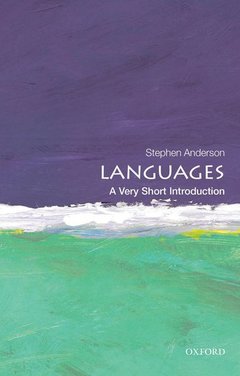Languages: A Very Short Introduction Very Short Introductions Series
Langue : Anglais
Auteur : Anderson Stephen

How many languages are there? What differentiates one language from another? Are new languages still being discovered? Why are so many languages disappearing? The diversity of languages today is varied, but it is steadily declining. In this Very Short Introduction, Stephen Anderson answers the above questions by looking at the science behind languages. Considering a wide range of different languages and linguistic examples, he demonstrates how languages are not uniformly distributed around the world; just as some places are more diverse than others in terms of plants and animal species, the same goes for the distribution of languages. Exploring the basis for linguistic classification and raising questions about how we identify a language, as well as considering signed languages as well as spoken, Anderson examines the wider social issues of losing languages, and their impact in terms of the endangerment of cultures and peoples. ABOUT THE SERIES: The Very Short Introductions series from Oxford University Press contains hundreds of titles in almost every subject area. These pocket-sized books are the perfect way to get ahead in a new subject quickly. Our expert authors combine facts, analysis, perspective, new ideas, and enthusiasm to make interesting and challenging topics highly readable.
1. Introduction: dimensions of linguistic diversity. 2. How many languages are there in the world?. 3. Phylogenetic linguistics: establishing linguistic relationships. 4. The future of languages. 5. Some problems in the counting of languages. 6. The genotypes of languages. 7. The diversity of signed languages. 8. Conclusion: the unity of human language. References. Further reading.
Stephen Anderson has been the Dorothy R. Diebold Professor of Linguistics at Yale University for the last 15 years. He has written or co-authored six books in Linguistics, including Doctor Dolittle's Delusion (Yale University Press, 2004) a book on animal communication and its relation to human language intended for the educated general reader that was chosen as the Best Book in Psychology for 2004 by the Professional/Scholarly Publishing Division of the Association of American Publishers. He is a Fellow of the American Academy of Arts and Sciences, the American Association for the Advancement of Science, the Linguistic Society of America, and the Association for Psychological Science. He was also President of the Linguistic Society of America in 2007.
Date de parution : 06-2012
Ouvrage de 160 p.
11.6x17.4 cm
Thèmes de Languages: A Very Short Introduction :
© 2024 LAVOISIER S.A.S.



